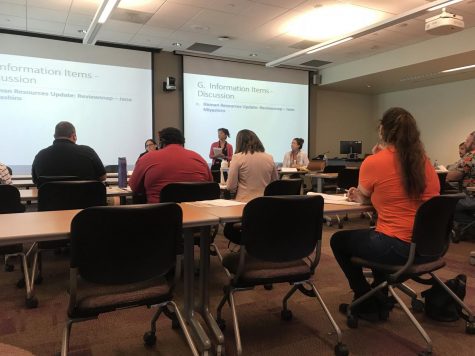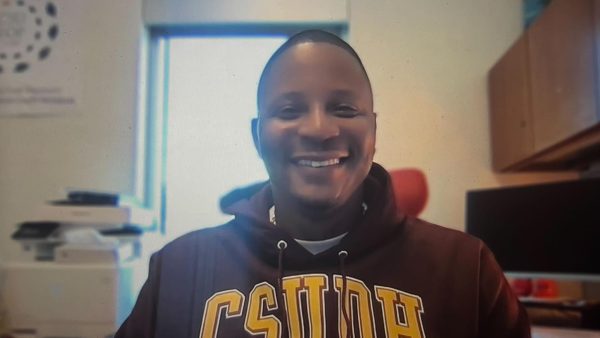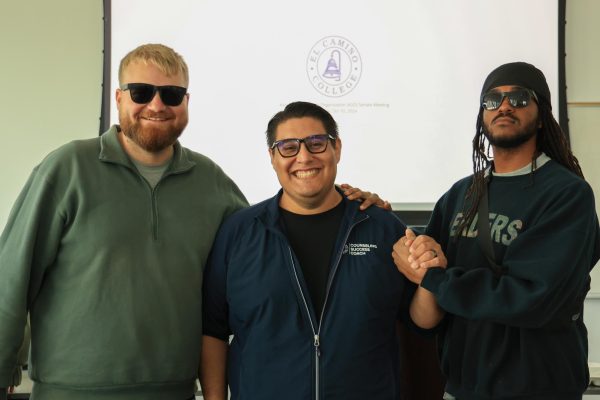Procedure approved to help tell students how to request accommodation for disabilities

A procedure to explain how to request accommodation or course substitution as a student with a disability was approved by the Academic Senate in the Distance Education Conference Room on Tuesday, Oct. 16.
The Academic Accommodations for Students with Disabilities Procedure sets forth guidelines that would allow students with disabilities “equal opportunity to complete course requirements,” according to the AP 4055 document in the Academic Senate agenda.
“It’s a new Academic Procedure (AP) that just spells out how students with disabilities would go through the process of requesting accommodation and if they don’t agree with the accommodations that are provided for them; how they can repeal that and go through the process,” Academic Senate Vice-President of Educational Policies, Darcie McClelland said.
McClelland said she was not sure if there were any problems with the way accommodations were being made before and that the Academic Senate is always working on improving policies and procedures.
“We’re just making sure everything is spelled out clearly, McClelland said. “We just want there to be clarity for our students and that they know where to find the services.”
In a previous incident, Vice-President of Academic Technology, Pete Marcoux said during the meeting that he had an issue where a student was under the impression that their assignment was not due for eight weeks, rather than the four Marcoux set in the syllabus because they claimed to have accommodation.
“I think that is a communication issue and we just need to be really clear in communicating expectations,” Academic Senate President, Kristie Daniel-DiGregorio said.
Marcoux said that these expectations need to be made clear on the forms.
“I think it’s the institution’s responsibility to be really clear and to anticipate where some confusion might lie, Daniel-DeGregorio said. “But it is also the student’s responsibility.”
According to the AP 4055, students are responsible for requesting accommodations with a counselor or disability specialist in the Special Resource Center, where they are assessed.
“After consultation, if the student disagrees with the recommendation for accommodations made by the SRC or Dean of Student Support Services, the student may request a review of the accommodations through the grievance procedure outlined in the SRC student handbook,” according to the AP 4055.
DiGregorio said that representatives from the SRC and counseling took part in a sub-committee that took a look at the functions that were already being fulfilled in their SRC handbook and formalized them.
Daniel-DiGregorio said the AP 4055 lays out a timeline.
“It was really about formalizing it into an Administrative Procedure but getting a little bit more into specifics about how quickly we need to respond to students, Daniel-DiGregorio said.
According to the AP 4055, if an instructor and a student cannot reach an agreement for accommodation, The Americans With Disabilities Officer or a representative will review the issue and attempt to resolve it within five business days.
“Once the reasonable accommodation has been determined, I really do have to respond and comply, so it’s not a negotiation that I have with the student necessarily,” Daniel-DiGregorio said. “This is the information I am getting from the experts and I need to accommodate the student accordingly.”
As for course substitutions, they can be made if the Academic Accommodations Committee approves the required course as nonessential to the student’s major, if the “reasonable accommodations offered do not enable” the student successful completion of a course, or if a student’s limitations are too much that it would be a waste of time to take the required course, according to the AP 4055.
Although the Academic Senate passed AP 4055, the procedure is not official yet and will go to the College Council next, Daniel-DiGregorio said
“They’re not set until they go to College Council and where it gets really interesting is if College Council makes a bunch of changes, then it bounces all the way back down and so, then it goes to Education Policies… (it) sort of starts the same process over again,” Daniel-DiGregorio said.
Daniel-DiGregorio said when the guidelines were first introduced, they were met with questions and understanding but no reluctance.
“We’ve been talking about this a lot, Daniel-DiGregorio said. “We have a new training system.”
Daniel-DiGregorio said that completing the new training system will help faculty learn how to support students with disabilities and receive “flex credit” in the process.
Daniel-DiGregorio said as an instructor, she gets paid for days where she is not in class but is still expected to, “for that pay,” engage in professional development activities such as the new training system.
“We’re asking all faculty to go through this training module, to really understand this process,” Daniel-DiGregorio said.
Update Oct. 17, 2:16 p.m., A photo was added to the story.







